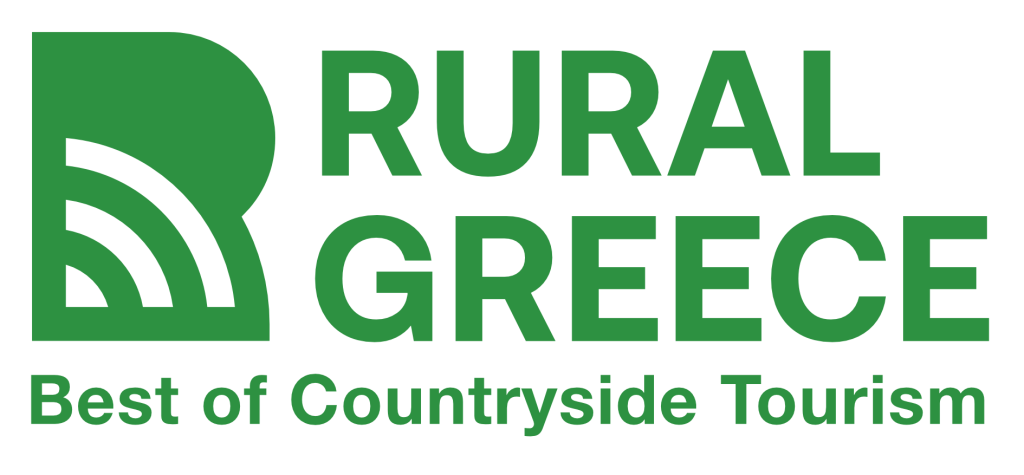Title – Name
Bordeaux Métropole Tourist and Convention Office
Scope / Sector / Industry
Wine Tourism
Country / Region
France, Bordeaux
Why is it good practice?
The case of wine tourism management in Bordeaux is a good practice as, while it is considered the oldest and most famous wine-growing region in the world, a great effort has been made to maintain this reputation over the years, keeping pace with the changes and challenges that arise. The Bordeaux Region, the main ambassador of the region’s wine tradition, through actions and initiatives, promotes this heritage with extroversion, prioritizing the sustainability of the place, at an environmental, social and economic level.
How is it applied?
The Bordeaux Region is a very popular and touristic region of France, known for its gastronomy and cultural activity. Famous for its winemaking tradition, the Bordeaux region is the largest vineyard with a Protected Designation of Origin (PDO). Covering 112,000 hectares, Bordeaux is considered the largest and oldest wine region in the world with 7000 winemakers, 300 wine agencies and an average production of 5 million hectoliters per year. The wine regions of Bordeaux are Saint-Emilion-Pomerol-Fronsac, Medoc, Blaye and Bourg, Graves and Sauternes, Entre-Deux-Mers and Bordeaux itself, in the city of which there are two wine museums. Every year it receives a very large number of visitors for tours, tastings and other wine tourism experiences.
Some of the reasons that contributed to the continuous development of wine tourism in the region, despite the above wine reputation are:
- The continuous development of wine tourism activities. Many wineries in the region are creating more and more, special and personalized wine experiences, making traditional chateaux more accessible to visitors.
- The creation of the “Cité du Vin” wine museum in the city of Bordeaux, an emblematic project that opened in 2017 and in May 2022 exceeded 2 million visitors. It is the 4th most visited museum outside the center of Paris and hosts exhibitions, performances, film screenings, academic seminars, etc., all focused on wine-related topics.
- The full operation of the “LGV Sud Europe Atlantique” high-speed train in 2017, reducing travel time from Paris to the city of Bordeaux. Today, more than 30 trains a day run between the two cities in two hours.
- Bordeaux’s air connection with approximately 109 direct destinations. In 2018, the city recorded 6.8 million travelers.
- Its presence on the list of UNESCO World Heritage Sites, giving the region more popularity.
- The continuous support and promotion of wine tourism by the Bordeaux Region, through projects, actions and initiatives that respond to today’s needs and requirements.
The dissemination of Bordeaux’s winemaking tradition and culture is carried out by the homonymous Region, specifically through the establishment of the Bordeaux Métropole Tourist and Convention Office 25 years ago. Its aim is to promote the city and its surrounding areas as a destination for conferences, seminars, trade fairs and incentives, and it currently acts as an interface between local business tourism professionals and event organizers, venues and other service providers.
On the official website of the Office, the visitor finds a wealth of information on wine tourism in the area, such as visitable wineries, cellars and wine bars. There, he is given the opportunity to choose and purchase from a variety of tourist packages such as tours and wine tastings (often accompanied by local cheeses, chocolate, caviar or other local products), alternative tours of vineyards and areas of Bordeaux (cities, villages and UNESCO areas) by scooter, vintage cars, electric bicycles, segway, hikes, wine tasting workshops, meals, picnics in the countryside, activities for children, wine cruises, wellness treatments with essential oils of grapes, vines and grape must, overnight stay in a grape barrel, etc.
In the context of promoting wine tourism, the Tourist Office also promotes 4 wine routes. Three of them are cycling routes in the urban vineyards of Bordeaux and one is a walking route within the city. A map with suggested points of interest is provided for the routes.
As tourism trends change, the priority of the regional tourism strategy today is to reconsider tourism and its environmental impact. As visitors are increasingly aware of environmental issues, the Region is now paying more attention to local tourism development and aims to promote Bordeaux as a sustainable and authentic destination, suitable for all types of stays. Thus, by 2030, its primary objective is to build a sustainable tourist destination, which will emphasize local economic development and environmental protection, for the benefit of tourists and residents.
For the wine sector, the Region’s strategy until 2030 emphasizes issues of sustainability and innovation. According to it, as the wine industry is currently subject to numerous changes (e.g. changes in consumption patterns, environmental challenges, increased competition from abroad, etc.), it must adapt and keep pace with them in order for the sector to continue to be a driving force for growth and employment. Throughout the period 2020-2026, the Region intends to support the wine sector through a series of targeted strategic actions:
- Continue to support the innovation ecosystem in order to establish industry companies and start-ups in the region. In particular, it supports the “Inno’Vin” ecosystem, the first in the wine industry, which contributes to addressing the challenges of the sector through innovation, helping to find solutions. It also supports the “Agri Sud-Ouest Innovation” ecosystem, which is active in the agriculture and agri-food sectors, the “Bordeaux Technowest” Technology Park with its “Food and Wine Tech” incubator, as well as the “Unitec” technology center with its “Bernard Magrez Start-Up Win” incubator.
- Promotion of responsible and sustainable wine production. Today, the Gironde region of the Region is considered the largest organic vineyard in France with 16.8% of it certified for organic cultivation and 75% of wine production classified as “High Environmental Value”. The Region aims to reach 100% by 2030 and for this reason it has committed to sustainable certification of the sector, based on the 6 axes below, with the aim of creating a responsible, committed and sustainable wine industry:
- Reducing environmental impact
- Reducing the use of pesticide
- Preserving biodiversity
- Preserving social cohesion
- Anticipating the effects of climate change
- Developing corporate social responsibility
- Implementing and supporting cultural events linked to wine. The Region intends to support events around wine, such as the “Bordeaux Wine Festival”, the Vi-TIC event (biennial) dedicated to digital and robotic innovation serving the wine industry, as well as the Vinitech-Sifel trade fair (biannual and international in scope), dedicated to innovation, which also concerns professionals in the wine sector.
In addition, within the framework of the Region’s overall tourism strategy, the following initiatives are being developed, which are also applicable to wine tourism:
- Development of environmental and sustainable activities. In the context of developing more ecological options for the visitor and mitigating the impacts on the climate and the environment, the Region gives priority to the development of hiking trails in response to the demands of the tourist offer. The action includes the creation of new hiking trails, with the aim of forming a network between the different paths. Also, an initiative with a positive environmental impact is the effort to develop ecological responsibility in the events sector. Specifically, the Region proceeded to publish the guide “Organising your positive impact event in Bordeaux” which is addressed to professionals in the field and aims to support them in their efforts to reduce the environmental impact of their events and leave a positive legacy in the region. All of the above comes as a result of the 2022 – 2026 roadmap “Together, building, a recognised responsible tourism destination”, which reflects the Region’s vision for a more responsible tourism in the region.
- Development of accessibility. The Region seeks to make the Bordeaux region a destination accessible to all. In this context, the “Tourism & Disability” association was created, which aims to raise awareness among tourism professionals about services for people with disabilities in tourist and leisure facilities. From this initiative, the certified “Tourism and Handicap” routes were created, which are accessible for people with mobility or hearing impairments, while four map screens have been installed for people with visual impairments. The Tourist Office has also developed a special guide for people with disabilities and contains all the services available to people with reduced mobility. Specifically for the wine tourism sector, the guide promotes all wineries that meet accessibility infrastructures and 5 wine routes. The guide is regularly updated, taking into account the comments and needs of users. Furthermore, in the context of the implementation of the “Bordeaux Wine Festival”, measures are taken to make it accessible to all, while the Municipality pays particular attention to the adaptation of the spaces where the festival is implemented.
- Development of smart tourism. In the context of the exploitation of smart applications in the wine tourism sector, the Bordeaux Tourist Office created the “Tasting Pass” initiative for the “Bordeaux Wine Festival”, namely an RFID (Radio Frequency Identification) card that allows participants to enjoy 12 tastings from the 80 different labels available at the stands. This card also includes entry to a tasting workshop.
Where is it applied?
The effort to promote and promote wine tourism in the Bordeaux region and its management initiatives by the Region directly concern visitors to the region and especially wine lovers, but indirectly contribute to local prosperity and development.
Results
The Bordeaux Tourist Office, for all the above initiatives, has obtained the following certifications and distinctions:
- “Accueil Vélo”, which is a national label guaranteeing quality welcome and services along cycle routes for cyclists.
- “ISO 20121” for its sustainable management, including the organization of the Bordeaux Wine Festival.
- “Tourism and Disability”, a label recognizing accessibility efforts.
Also, in 2014, the city of Bordeaux was awarded the “Destination pour tous” label for its efforts to accommodate people living with intellectual disabilities or mobility impairments. It was the first city to receive this official certification and since 2020 the label applies to the entire urban area.
Finally, in 2022 the city of Bordeaux was elected European Capital of Smart Tourism.
Other Information
The official website of the Bordeaux Métropole Tourist and Convention Office is: https://www.bordeaux-tourism.co.uk/




